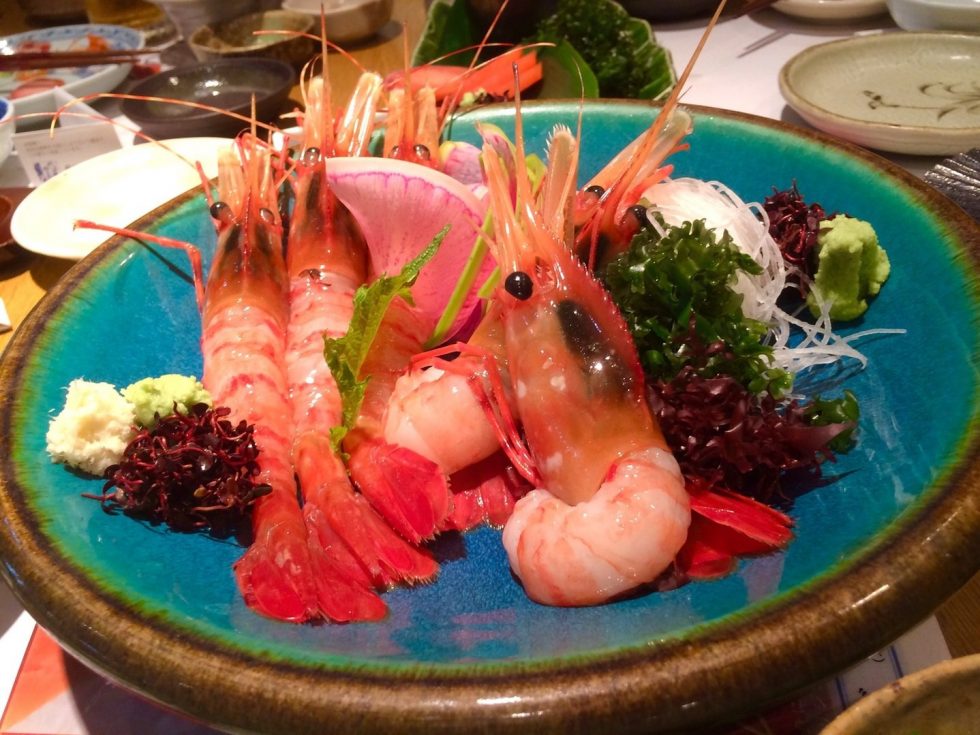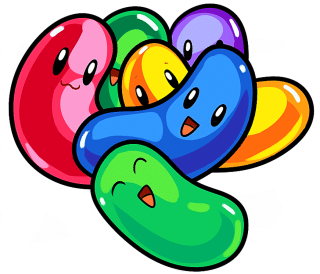Restaurant English – Common Expressions Waiters & Staff Use

Restaurant English: Mastering Dialogues and Vocabulary
When you go to a restaurant, you usually know what is going to happen and that is because eating at a restaurant usually follows a set script. The waiters aren’t given one to memorize, of course. But even so, waiters and waitresses usually stick to a very narrow range of English phrases. We have written bellow what you can usually expect to hear when going to a restaurant.
Looking for good restaurants with a Michelin star for that special occasion:
https://guide.michelin.com/jp/en/restaurants
This website allows you to search for restaurants with English-speaking staff around Japan:
https://savorjapan.com/list/?fgc=51
This is a site that specializes in travel and restaurants around Hokkaido, Japan. Looking for vegan food? Got allergies or food restrictions? This site has lots of search filters and pages in both Japanese or English.
https://hokkaido.a4jp.com/category/en-restaurants
English Phrases For Restaurants: Dialogue at the Restaurant
What You Need To Know
For Restaurant Staff: From the host or hostess
- “Welcome! How many guests are in your party today?”
- “Do you have a reservation?”
- “Your table is ready, Mr. Knight. Right this way.”
- “Would you like me to take your jackets?”
When you first enter, the host or hostess will want to know how many people are eating with you. They might ask:
- How many?
Or, in an upper class restaurant they may say:
- How many are in your party?
If they can see how many people walked in together, they might simply ask:
- Two?
Some popular places expect you to have a reservation before you come. In that case, the hostess might ask:
- Do you have a reservation?
If the place is really busy, you might have to wait. They’ll say:
- It’s going to be about a 15-minute wait.
If you decide to wait, they’ll write your name on a list:
- Can I get your name (please)?
And then, when it’s your turn to sit:
- Mr. Knight, your table is ready.
The host or hostess will take you to your table with one of these phrases:
- Right this way.
- Follow me, please.
If it’s a nice restaurant, they may ask:
- Would you like me to take your jackets for you?
And then they say goodbye:
- Jacob will be your server tonight.
- Enjoy your meal.
Restaurant Staff: From the waiter or waitress
- “Good evening! I’m Rebecca, your server tonight.”
- “May I start you off with some drinks?”
- “Here are today’s specials.”
- “Are you ready to order?”
- “Would you like fries or a baked potato with that?”
- “How was everything? Can I interest you in dessert?”
The waiter will usually start off by introducing him- or herself:
- Welcome to D’Angelo’s. My name is Rebecca.
Depending on the atmosphere of the restaurant, they may try to make some small talk:
- How are you doing this evening?
If the restaurant has daily specials, the server will tell you about them:
- Let me tell you about our specials today. We have a miso-glazed Chilean Sea Bass with a side of mashed sweet potatoes and sauteed spinach.
Then you’re expected to order drinks:
- Can I get you something to drink?
If you’re not sure, the server will offer to come back again in a few minutes:
- Do you need a little time to decide?
They’ll go around the table to each person, using phrases like these:
- And for you sir?
And for you miss?
- What can I get for you?
Then they’ll leave:
- I’ll be right back with your drinks.
Restaurant English: The main food order
When the waiter or waitress returns, they will ask for your order:
- Are you ready to order?
If the dish you order has a choice of side dishes, they’ll offer to let you choose:
- That comes with either fries or a baked potato. Which would you prefer?
- Would you like fries with that, or a baked potato?
If you ask for something, the server will say:
- Sure.
Or at a fancier restaurant:
- Certainly.
But if you ask for something that’s not available, you’ll hear:
- Oh, I’m sorry. We’re all out of the salmon.
When the waiter or waitress brings you your food, they’ll probably ask:
- Can I get you anything else?
- Would you like anything else?
After you’re finished eating everything, someone will come to collect your dishes:
- Would you like me to take that?
Then the server will come out to ask about your meal and offer dessert:
- How was everything?
- Can I interest you in our dessert menu?
Restaurant English: The bill/check
When you finish with your meal, they’ll offer to bring you the check:
- I’ll bring the check right out.
And sometimes there are questions about the check:
- Would you like me to split it?
- Do you need any change?
- May I help you?
- How many people?
- Are you ready to order?
- Here is your menu.
- Would you like another menu?
- Are you finished with this?
- Please use the buzzer when you are ready to order.
- Smoking (kitsuen) or non-smoking (kinen) sections…
- I’m very sorry that’s sold out.
Waiter and Customer – Conversation in Restaurants
1. Greeting and Seating
English:
Waiter: Hello. Welcome to our restaurant. How many people today?
Customer: Two people, please.
Waiter: Great. Right this way please. Here are your menus. Can I get you something to drink?
Customer: Yes. I’ll have a glass of water, please.
Waiter: Sure. I’ll be right back.
Japanese:
ウェイター: こんにちは。ようこそ。今日は何名さまですか。
お客さん: 二人です。
ウェイター: かしこまりました。どうぞこちらへ。メニューです。お飲み物はいかがですか。
お客さん: はい。お水をください。
ウェイター: かしこまりました。すぐお持ちします。
Romaji:
Weitaa: Konnichiwa. Youkoso. Kyou wa nan mei sama desu ka.
Okyakusan: Futari desu.
Weitaa: Kashikomarimashita. Douzo kochira e. Menyuu desu. Onomimono wa ikaga desu ka.
Okyakusan: Hai. Omizu o kudasai.
Weitaa: Kashikomarimashita. Sugu omochi shimasu.
Katakana:
ウェイター: コンニチハ。ヨウコソ。キョウ ハ ナンメイサマ デスカ。
オキャクサン: フタリ デス。
ウェイター: カシコマリマシタ。ドウゾ コチラ エ。メニュー デス。オノミモノ ハ イカガ デスカ。
オキャクサン: ハイ。オミズ オ クダサイ。
ウェイター: カシコマリマシタ。スグ オモチ シマス。
2. Ordering Food
English:
Waiter: Are you ready to order?
Customer: Yes. I’ll have the steak with a baked potato.
Waiter: Certainly. And for you?
Other Customer: I’ll have the grilled chicken with salad, please.
Waiter: Very good. I’ll bring your food soon.
Japanese:
ウェイター: ご注文はお決まりですか。
お客さん: はい。ステーキとベイクドポテトをお願いします。
ウェイター: かしこまりました。お客さまは。
別のお客さん: グリルチキンとサラダをお願いします。
ウェイター: かしこまりました。少々お待ちください。
Romaji:
Weitaa: Gochuumon wa okimari desu ka.
Okyakusan: Hai. Suteeki to beikudo poteto o onegai shimasu.
Weitaa: Kashikomarimashita. Okyakusan wa.
Betsu no okyakusan: Guriru chikin to sarada o onegai shimasu.
Weitaa: Kashikomarimashita. Shoushou omachi kudasai.
Katakana:
ウェイター: ゴチュウモン ハ オキマリ デスカ。
オキャクサン: ハイ。ステーキ ト ベイクドポテト オ オネガイ シマス。
ウェイター: カシコマリマシタ。オキャクサマ ハ。
ベツ ノ オキャクサン: グリルチキン ト サラダ オ オネガイ シマス。
ウェイター: カシコマリマシタ。ショウショウ オマチ クダサイ。
3. After Food Arrives
English:
Waiter: Here is your order. Can I get you anything else?
Customer: No, thank you. Everything looks great.
Waiter: Enjoy your meal.
Japanese:
ウェイター: お待たせしました。ご注文の品です。他に何かありますか。
お客さん: いいえ。大丈夫です。おいしそうです。
ウェイター: ごゆっくりどうぞ。
Romaji:
Weitaa: Omatase shimashita. Gochuumon no shina desu. Hoka ni nanika arimasu ka.
Okyakusan: Iie. Daijoubu desu. Oishisou desu.
Weitaa: Goyukkuri douzo.
Katakana:
ウェイター: オマタセ シマシタ。ゴチュウモン ノ シナ デス。ホカ ニ ナニカ アリマスカ。
オキャクサン: イイエ。ダイジョウブ デス。オイシソウ デス。
ウェイター: ゴユックリ ドウゾ。
4. Finishing the Meal
English:
Waiter: How was everything?
Customer: It was delicious. Thank you.
Waiter: Would you like the check?
Customer: Yes, please.
Japanese:
ウェイター: お味はいかがでしたか。
お客さん: おいしかったです。ありがとうございます。
ウェイター: お会計になさいますか。
お客さん: はい。お願いします。
Romaji:
Weitaa: Oaji wa ikaga deshita ka.
Okyakusan: Oishikatta desu. Arigatou gozaimasu.
Weitaa: Okaikei ni nasaimasu ka.
Okyakusan: Hai. Onegai shimasu.
Katakana:
ウェイター: オアジ ハ イカガ デシタカ。
オキャクサン: オイシカッタ デス。アリガトウ ゴザイマス。
ウェイター: オカイケイ ニ ナサイマスカ。
オキャクサン: ハイ。オネガイ シマス。
Restaurant English
Here are 20 common vocabulary terms used in restaurants:
- Menu: A list of food and drinks offered by a restaurant.
- Dessert: A sweet dish served at the end of a meal.
- Buffet: A self-serve dining option where guests can select items from a set display of food.
- Host/Hostess: A restaurant worker who greets and seats guests.
- Chef: A professional cook who is in charge of a restaurant’s kitchen.
- Bartender: A worker who mixes and serves drinks at a bar.
- Appetizer: A small dish served before the main course.
- Entrée: The main dish of a meal.
- Side Dish: A dish served alongside the main course to complement it.
- Dishwasher: A worker responsible for cleaning dishes and kitchen equipment.
- Plating: The presentation of food on a plate, including the arrangement and garnishing of ingredients.
- Server: A restaurant worker who takes orders and serves food and drinks to customers.
- Sommelier: A wine expert who advises on wine selection and pairing.
- Al a carte: A type of menu where each dish is priced separately.
- Busser: A restaurant worker who clears and resets tables and assists servers.
- Line cook: A chef who specializes in preparing food on the line, such as sauces, entrées, and sides.
- Amuse-bouche: A small bite-sized appetizer offered as a preview of the meal to come.
- Table d’hôte: A type of menu where guests choose from a set number of courses for a fixed price.
- A la minute: A cooking method where dishes are prepared to order.
- Mise en place: Preparing and arranging ingredients and equipment needed for cooking.
Here are 15 common cooking-related idioms:
- “to cook up a storm” – to cook with great energy and enthusiasm
- “to bring home the bacon” – to make a living or earn money
- “to be the icing on the cake” – to be the best part of something
- “to have a taste for something” – to have a liking or desire for something
- “to be in the same boat” – to be in the same situation as someone else
- “to be the spice of life” – to add excitement and variety to life
- “to have a recipe for success” – to have a plan or formula for success
- “to stir the pot” – to cause trouble or create conflict
- “to be in a pickle” – to be in a difficult situation
- “to bake one’s cake and eat it too” – to have everything one wants
- “to be left with egg on one’s face” – to be embarrassed or made to look foolish
- “to cook someone’s goose” – to ruin someone’s plans
- “to make a meal of something” – to make something into a big deal or make more of it than necessary.
- “to have a finger in every pie” – to be involved in many different things
- “to cook up an excuse” – to make up a false reason for something.

Restaurant English For Customers:
Here are roughly 60 useful phrases for a customer at a restaurant, divided into questions and answers:
Questions
- How long is the wait?
- Can I see the menu, please?
- Do you have any specials today?
- What do you recommend?
- Can I get a table for two (people), please?
- Is there a vegetarian option?
- Do you have gluten-free dishes?
- Does this have nuts in it?
- Can I have the wine list, please?
- Can I order a drink first?
- Is this dish spicy?
- Can I have this without onions?
- Is there a menu with allergy information in it?
- Is there a children’s menu?
- What is the soup of the day?
- Can I get a glass of water, please?
- Is there any outdoor seating available?
- Can I make a reservation for tomorrow night?
- What are your opening hours?
- When do you open?
- Do you accept credit cards?
- Can I have a refill, please?
- What desserts do you have?
- Can I see the dessert menu, please?
- Can I have the bill, please?
- Do you have a loyalty program?
- Is there a restroom I can use?
- Can I take this to go?
- What are your vegan options?
- Could I get some chopsticks, please?
- Could I get this without sugar, please?
- Can you make this without the spice?
- Could we get some more bread, please?
- Could you please bring me some napkins?
- Can I get some extra sauce on the side?
- Is this for Jack?
- Rabbit is healthier than chicken, isn’t it?
Answers
- I’ll have the steak, please.
- I would like a glass of red wine.
- This table is perfect, thank you.
- I’m ready to order.
- I’ll take the special of the day.
- This is delicious, thank you.
- I’ll have the chicken salad.
- Could you please bring the check?
- Do you have any recommendations?
- I’ll have the same, please.
- This is for here, thank you.
- Can I get that to go, please?
- Could I see the manager, please?
- I’ll take a glass of water with lemon.
- I’d like to pay by card.
- I’d like one of those, please.
- Everything was excellent, thank you.
- No, thank you, I don’t need anything else.
- Yes, I would like dessert.
- Could we have separate checks, please?
- My son always eats the red jellybeans.
- I’ll get the bill.
- I’d like to make a reservation.
- Excuse me. There’s a hair in my soup.
- Sorry but I didn’t order this.
- One more please!
- She never orders the sushi here.
These phrases should help in various dining situations, making your experience at a restaurant smoother and more enjoyable.
🍴 Restaurant Idioms – Useful for Eating Out!
Try to make sentences with these
- A bite to eat
📝 Means: just a quick meal or snack
📌 Let’s get a bite to eat before class!
Not a big meal, just something small. - Wine and dine
📝 To treat someone with nice food + drinks
📌 He wined and dined her at that fancy Italian place!
He’s so romantic lol. - Foot the bill
📝 Pay the bill (especially if it’s expensive)
📌 My dad usually foots the bill when we go out to eat. - On the house
📝 Free! The restaurant pays, not you
📌 Our drinks were on the house because the service was slow. Lucky! - Sweet tooth
📝 If you LOVE sweets and desserts
📌 I always order cake…
I have such a sweet tooth!
Try using these in questions
- Go halves
📝 Each person pays for themselves
📌 Let’s go halves today.
I didn’t bring much cash. - In a nutshell
📝 To explain something quickly
📌 In a nutshell, the menu is mostly seafood and pasta. - Spill the beans
📝 To tell a secret (maybe by accident!)
📌 He spilled the beans.
Now everyone knows about the surprise dinner 😅 - Piece of cake
📝 Something is super easy!
📌 Ordering in English was a piece of cake today! Yay! - Bring home the bacon
📝 To earn money for the family
📌 My mom works hard to bring home the bacon.
A few more
- Chew the fat
📝 Talk casually for a long time (not really about food!)
📌 We sat in the café chewing the fat until midnight! It was so much fun. - Too many cooks spoil the broth
📝 Too many people = bad results
📌 Everyone tried to choose the restaurant and it was chaos…
Too many cooks! - Big cheese
📝 An important person (like the boss)
📌 The big cheese of the company came to eat here today! - Table for two
📝 A common phrase when you arrive at a restaurant
📌 Hi, a table for two, please.
Easy and polite! - Have a lot on your plate
📝 Very busy or stressed (not about food haha)
📌 The waiter looked so tired. He had a lot on his plate tonight!
